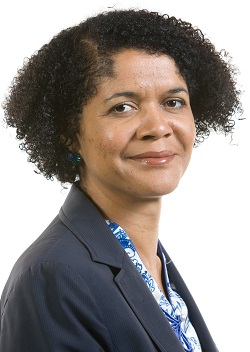Last week, a small group of NU Women members met to discuss writing groups, to share experience, best practice, and thoughts on continuing to develop NU Women’s writing groups and others across the institution. The discussion space was used for collaborative sharing around writing groups and was facilitated by Dr Stacy Gillis.
Who are writing groups for? Who participates?
Based on the diversity of experiences from those participating in the session, it could be said writing groups, in some form or another, are for everyone! Particularly, they benefit people who want to develop their writing techniques or practices, and for those who are feeling overwhelmed and need a space to catch up on research work without working during the weekends/holidays. This is particularly helpful to people with parenting and/or caring responsibilities, to whom other approaches such as writing retreats are inaccessible.
Writing groups represent an opportunity to learn from and with our peers, and functions best when participants hold each other accountable, and each take phatic responsibility for the success of the group. With this in mind, some people mentioned that they found interdisciplinary writing groups to be particularly helpful for fostering these attitudes, as interdisciplinary groups relieved feelings of pressure and competition.
In more practical terms, it was suggested that between five and eight participants seems to be the preferred size of a group. The benefits of women-only spaces were also discussed, as these can be a safer space for participants, particularly as the organisational and emotional labour of running writing groups often falls to women.
“What can I give to a group? What can I take?”
What are writing groups for? What needs to they address? What work is needed to create them?
Broadly, there are three types of writing groups: long-term and open-ended ones; they can be short-term and organised around meeting a specific deadline or delivering a certain output; or they can be project-based and orientated towards collaboratively achieving a certain goal. Each of these has their own kinetic energy and are preferable to different people depending on working styles and current career goals. They can also be particularly helpful for skill sharing and acquisition among colleagues when organised around things like proposal writing.
Writing groups also present an opportunity to check-in with each other, celebrate each other, and be honest with each other about the research process and struggle. Their value also carries beyond providing a space for writing, into being a space for solidarity, making friends, and networking (particularly in interdisciplinary groups). In this sense, writing groups also function as an act of feminist solidarity – guided by principles of mutual support, transparency, and flexibility. They are a protected space of care within the neoliberal institution.
In terms of organising work, there is some logistical planning needed to set up and run writing groups. This is variable depending on the levels of commitment from participants, whether they happen online or face-to-face, and whether there’s suggested reading or other tasks for participants to complete before each session. What is appropriate for your writing group depends on the needs and preferences of your group and the amount of time you can commit to organising.
Where do/should writing groups happen? Where are they needed?
Within the meeting there was broad agreement that the ‘where’ of writing groups should be flexible, not only to the circumstances of the pandemic but to other factors such as childcare commitments and workflow. Much of the discussion however was focused on the relative pros and cons to organising online versus offline writing group meetings. It was noted that, while both have their own distractions a significant benefit of online meetings is that they alleviate some of the organising pressures of room booking. However, online meetings do carry the problem of Zoom burnout and low engagement.
It was also identified that, because writing groups can be useful to staff and students across the institution, there is a need to share best practices. However, there is some resistance to the institutionalisation of writing groups to preserve their feminist, counter-neoliberal strengths.
When do/should writing groups happen? How do we identify when writing groups are needed?
In practical terms, writing groups tend to work best when their meetings are around two or three hours long, and when they’re not just drop-in sessions but require regular commitment from their members (while avoiding being to rigid to the detriment of mutual care within the group).
At times, writing groups arise organically out of other meetings or networks, or out of reading groups. Similarly, we can ask when the right time is for writing groups to happen. Should they always be ongoing, or should they happen around crunch seasons? As was found throughout the session, the answers to these questions are dependent on individual’s needs and outside commitments.





